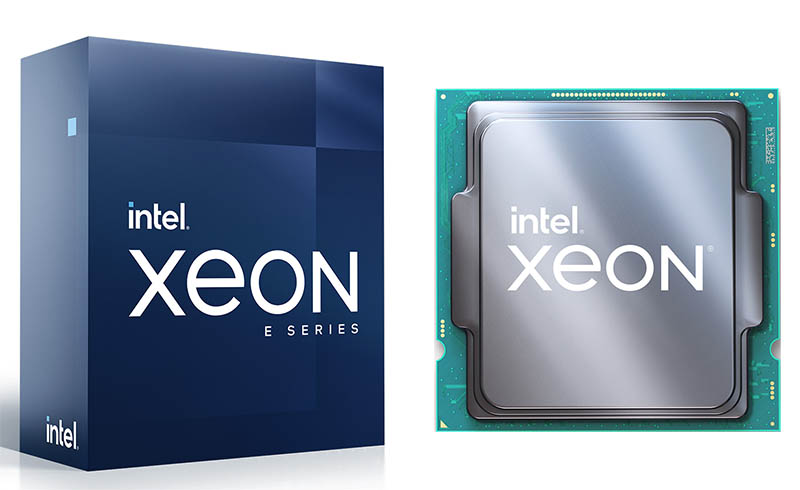- Oct 9, 1999
- 5,305
- 3,986
- 136
With the release of Alder Lake less than a week away and the "Lakes" thread having turned into a nightmare to navigate I thought it might be a good time to start a discussion thread solely for Alder Lake.
Is their yield that good that they dont have defective chips for i3?
I know it's a technicality but 8th gen i3 was a 4c/4t version of the kaby lake die.IIRC historically the i3 has been the full smaller die though.
There is still hyperthreading to disable. Intel did mention to someone to talk about threads so i3 is only 6threads compared to i5 at 12 and 16No. Just the opposite if the locked i5 ends up being 6+0. It means the i3 is a cut smaller die instead of a full.
That's quite a jump if i3 ends up being 6+0. Most games can't put more than 6 cores to good use so it would make a really decent budget gaming CPU. I also just found out that there is no i3 in the RocketLake line-up. WTH? Is their yield that good that they dont have defective chips for i3?
For desktop 6 big cores is way better approach than less big cores plus small cores. Intel's choice is good, that 4+8 would lose to 5600x at games that scale beyond 4 threads. This time 6 big cores is sweet spot, most of users won't need more but many workloads prefer 6 cores over 4.
I think this was known all along - as a desperate back port, there was no smaller RKL die and the 11th gen i3 and lower were just rebrands (if they ever existed?).
If it didn't have 6 functional cores to hit the min spec they must have been discarded.
Intel is selling a 4 core Rocket Lake Xeon-E.

To go from 8 cores to 4 cores requires a lot of defects. At that point, it is likely worth just scrapping it rather than trying to do all the labor to make another line of products for this stopgap generation. Instead, they just did a Comet Lake refresh of i3 and Pentium chips that got basically no press at all.I also just found out that there is no i3 in the RocketLake line-up. WTH? Is their yield that good that they dont have defective chips for i3?
 en.wikipedia.org
en.wikipedia.org
Think more towards pro/pro-sumer NAS units that support virtualization.Unfortunately, the bottom two SKUs, the Xeon E-2324G and Xeon E-2314 are four core, non-Hyper-Threading chips that harken back to the same 4 core/ 4 thread configuration we saw in our Intel Xeon E3-1220 review over a decade ago but at a ~20-25% cost decrease, and a massive number of improvements. Still, nothing feels like this is a non-competitive segment more than not incrementing thread counts in more than a decade. "
Haha, ouch. Probably use about the same (or more) power too, rated still at 65W (vs 80W) in 2021 terms...
Good for probably ~50%+ performance upgrade given the frequency uplift and the stacked generation of IPC gains though.
Given that it's WTFTech, it's probably not accurate. But not too far off. Not having the small cores is going to make the 12600 a bad deal compared to the 12600K unless the price gap is much bigger than in the past.
If fact, in these early days of the updated windows scheduler and lot of people sticking with Win10 for at least a while, the i5 is arguably the superior option full stop, as no tweaking or potential suboptimal core allocation is an issue with the 6/0/12 layout.
Huh, I was randomly looking at the cheapest board on Newegg to try to figure how much power it will allow the CPU to have and apparently there's a BIOS feature you can turn on which will turn off the Atom cores (temporarily?) if you enable scroll lock. That might be useful to people.
No, it couldn't be better, it could be the same but not better.Not having the small cores could be better in several circumstances like gaming workloads or Windows 10. The 6+0 die doesn't need to deal with the e-cores.
It would be cool to watch the E-cores appear and disappear in Task Manager if Windows reacts to the scroll lock in real time. Also, I hope the E-cores are shown distinctly in Task Manager.apparently there's a BIOS feature you can turn on which will turn off the Atom cores (temporarily?) if you enable scroll lock. That might be useful to people.
No, it couldn't be better, it could be the same but not better.

No, it couldn't be better, it could be the same but not better.
Only exception the DRM issue where games would just not even run but that's not a performance difference.
But this already happens all the time even without ecores, just make a google search with any game you want + stutter and you will get tons of hits because all the games are terribly coded and don't have any code to sync the threads anyway.
Game Dev Guide for 12th Gen Intel Core Processor Hybrid Architecture
The 12th Gen Intel© Core™ processor is a new performance hybrid architecture that combines two core types.www.intel.com
When primary thread pool thread get assigned to E-core performance will suffer due thread-syncronization problems. Using different speed cores will bring lots of new problems - Intel optimization simply points to target priority threads only to high performance cores.
Sure, if you turn off the ecores and that gives the rest of your cores more power to hit higher clocks then it will run better.Did you test it or how can you know? There are rumors about performances losses when they are enabled, higher power consumption and temperature as well. Surely not in all games but like with hyperthreading in the early days it wouldn't surprise me there are performances losses in a number of games.

Game Dev Guide for 12th Gen Intel Core Processor Hybrid Architecture
The 12th Gen Intel© Core™ processor is a new performance hybrid architecture that combines two core types.www.intel.com
When primary thread pool thread get assigned to E-core performance will suffer due thread-syncronization problems. Using different speed cores will bring lots of new problems - Intel optimization simply points to target priority threads only to high performance cores.
Disabling hyperthreading is a market segmentation thing. A core not capable of hyperthreading will be completely disabled. This has been the case for both Intel and AMD for a while now.There is still hyperthreading to disable. Intel did mention to someone to talk about threads so i3 is only 6threads compared to i5 at 12 and 16
AMD uses CPPC to designate preferred cores. Intel has a similar mechanism in both Windows 10 and Windows 11. Note that the Gracemont cores are higher latency, so they should always be deprioritized for performance tasks. The AMD bug regarding CPPC was precisely because of this FYI.
Game Dev Guide for 12th Gen Intel Core Processor Hybrid Architecture
The 12th Gen Intel© Core™ processor is a new performance hybrid architecture that combines two core types.www.intel.com
When primary thread pool thread get assigned to E-core performance will suffer due thread-syncronization problems. Using different speed cores will bring lots of new problems - Intel optimization simply points to target priority threads only to high performance cores.
Comparing 7+ old consoles with modern hardware is not a good idea, in general. Both GC and Gracemont cores are much faster than the console CPUs from 7+ years ago.But this already happens all the time even without ecores, just make a google search with any game you want + stutter and you will get tons of hits because all the games are terribly coded and don't have any code to sync the threads anyway.
Also most games are coded for the prev gen consoles that had two clusters of 4 cores so all those games already have internal sync issues that are made to not show up on consoles but will on anything else.
Sure, if you turn off the ecores and that gives the rest of your cores more power to hit higher clocks then it will run better.
Isn't everybody's opinion of intel though that power limits are always lifted and the CPU always has like 300W available?
Couple of thoughts...
The Gracemont cores at Skylake level IPC are quite strong in terms of compute. If it's a matter of working out scheduling with Intel and their 80% market share behind it I believe it will happen. There will be some issues here and there, and yes, minor and rare as they might be, there will be people jumping up and down with banners screaming it to the world. That's fine, there are those people on both sides of this fence. Intel is seriously committed to this and they have the right guys (finally) steering the ship.
Early Alder Leak benchmarks are looking to be legit... but... By legit I mean they were actually Alder Lake benchmark scores. But legit and useful are two different things. We have no idea of the specific benchmark version in some cases, no idea of clock speeds, memory configuration, motherboards, stage of chip development... Moving forward I'm not going to worry about benches without support. I think I've learned something from this "round."
The disturbing thing for me is that Intel is basically forcing developers to optimize for their hybrid architecture at the expense of AMD chips. We consumers need hybrid chips, but both AMD and Intel should be collaborating on an approach, despite being competitors. They are not.
I'm not comparing the consoles, all the games are still being coded for the old system is all I'm saying.Comparing 7+ old consoles with modern hardware is not a good idea, in general. Both GC and Gracemont cores are much faster than the console CPUs from 7+ years ago.
Latency is how fast they are going to react, not how fast they are going to complete a task.Gracemont cores have higher latency, but much higher efficiency.
Latency is how fast they are going to react, not how fast they are going to complete a task.


